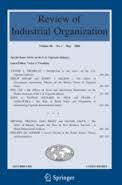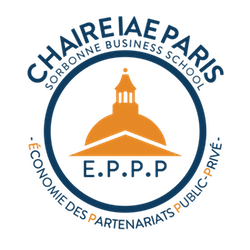7 novembre 2009
Stéphane Saussier, Carine Staropoli et Anne Yvrande-Billon, 2009,
Abstract: While, in practice, the participation of private actors at the local and national government levels through various types of contractual agreements has been increasing over the last decades, there are still few studies on the functioning and performances of such relationships.Our aim is to highlight some significant theoretical and empirical issues concerning Public–Private Agreements. We first assess the potential sources of efficiency of such contractual agreements. We then examine the selection issue which is a crucial stage for the efficiency of such agreement. Finally, we stress the importance of the institutional framework showing how it might affect the agreements’ efficiency.
Keywords Contracts – Institutions – Procurement auctions – Public–private agreements
The papers in this special issue of the Review of Industrial Organization originated with an international conference on “Public Private Contracts, Competition and Institutions” held at the University of Paris I Sorbonne, in December 2007. The purpose of this conference was to confront alternative theoretical approaches and empirical developments on this topic.
This special issue reflects this objective of balancing normative and positive approaches. It indeed provides a collection of papers dealing with how public–private contracts are shaped, their advantages and drawbacks, why and when they should be used, and how they affect performances. To some extent, it is a useful complement to another special issue on public–private partnerships already edited in this journal (Review of Industrial Organization, 2006, Volume 29, Numbers 1–2).
This special issue is the result of a collective work. We thank all of the participants to the conference for lively presentations and discussion. We are also particularly grateful to: Miguel Amaral, Laure Athias, David Azéma, François Bergères, Jean Beuve, Eric Brousseau, Julie de Brux, Claudine Desrieux, Aleksandra Domanski, Freddy Huet, Marie-Joëlle Kodjovi, Aude Le Lannier, Claude Martinand, Jean-Michel Oudot, Vincent Piron, and Steven Tadelis. We would also like to extend special thanks to the European School of New Institutional Economics (Esnie), the Grale, the French Institute for public–private partnerships (IGD), the University of Paris XI-Sud, the University of Paris I Sorbonne, the Roland-Berger Consulting Group, the French PPP task force (MAPPP—Ministry of Finance) and the Vinci-Concession Company who sponsored the conference. At last, we would like to express our gratitude to the referees for their reports and recommendations as well as the Review of Industrial Organization for its help and encouragement.
More information here : http://www.springerlink.com/content/1701090053047×07/

